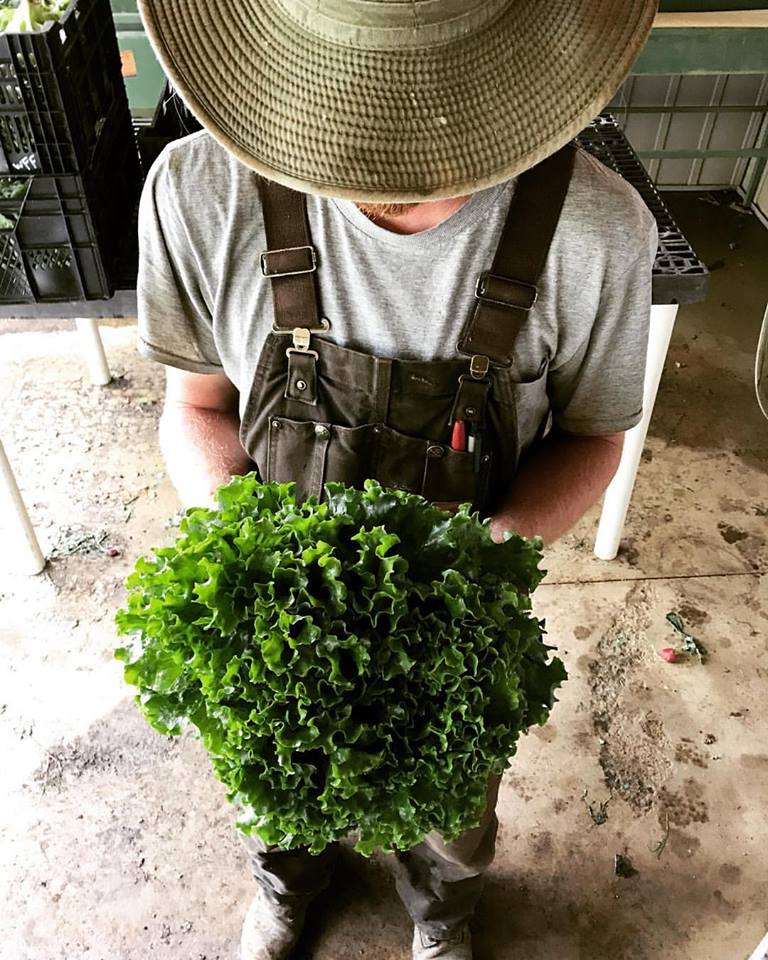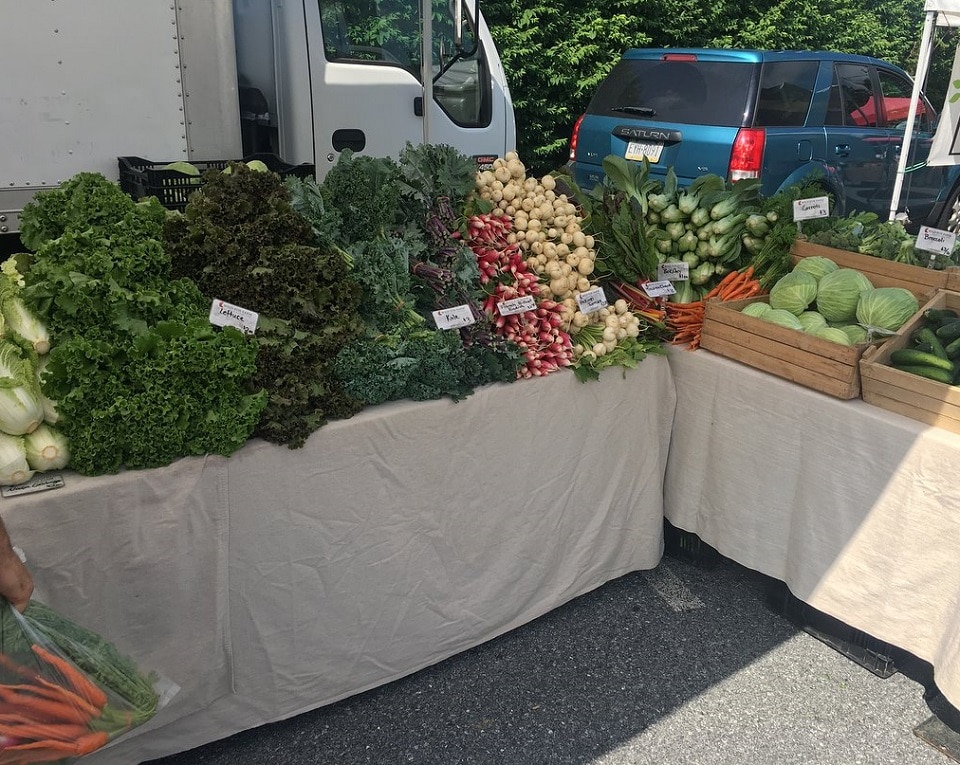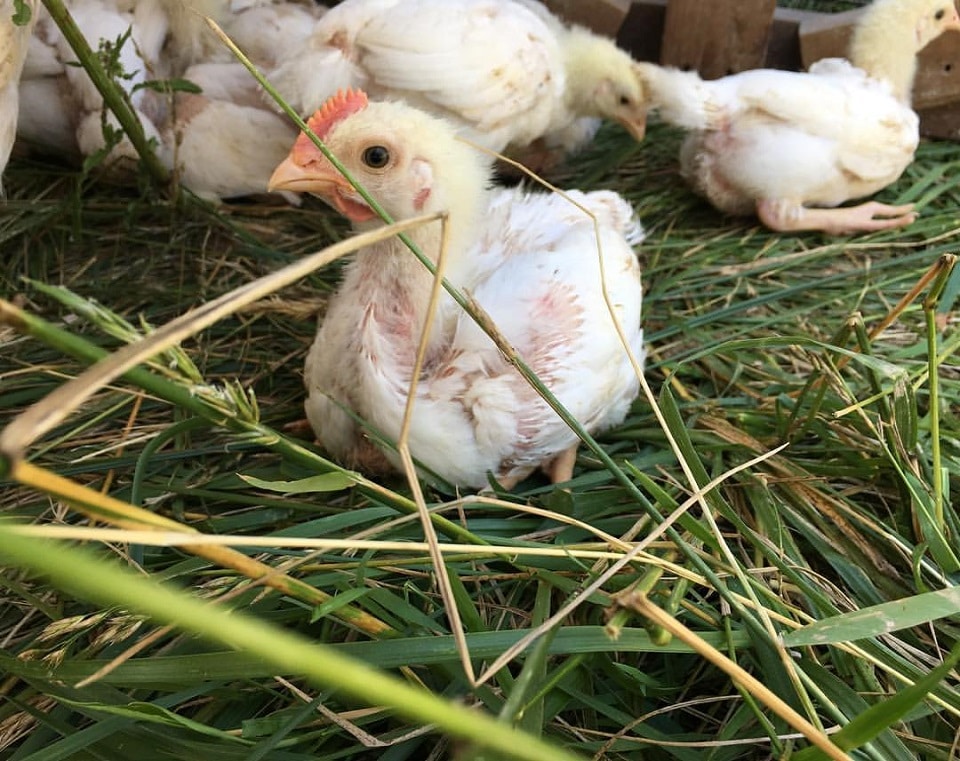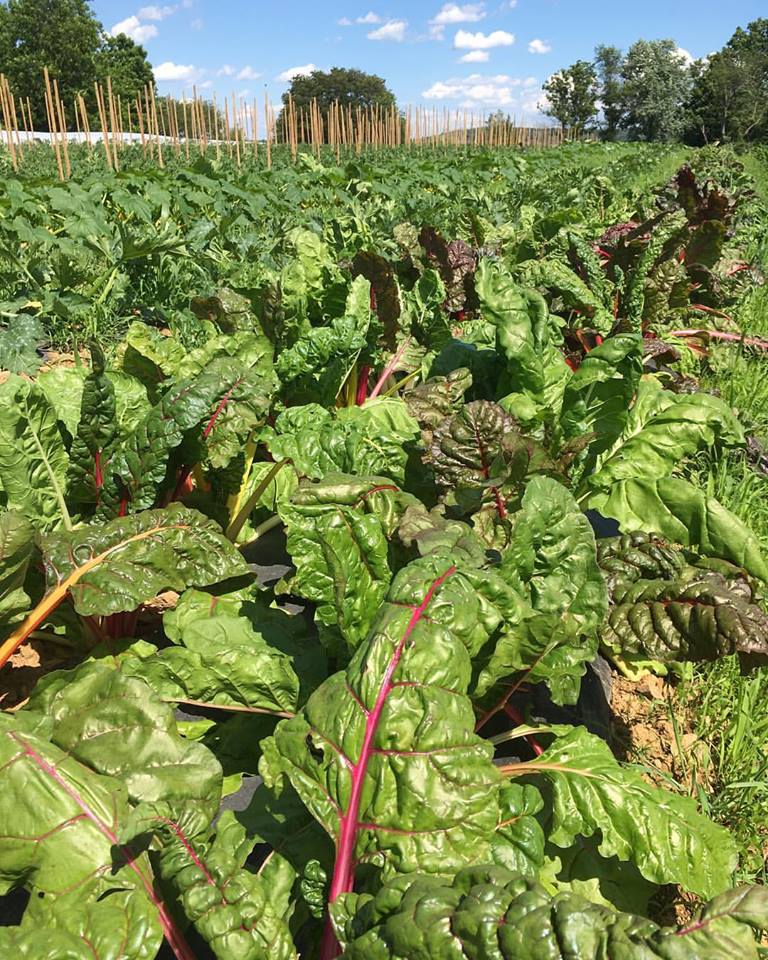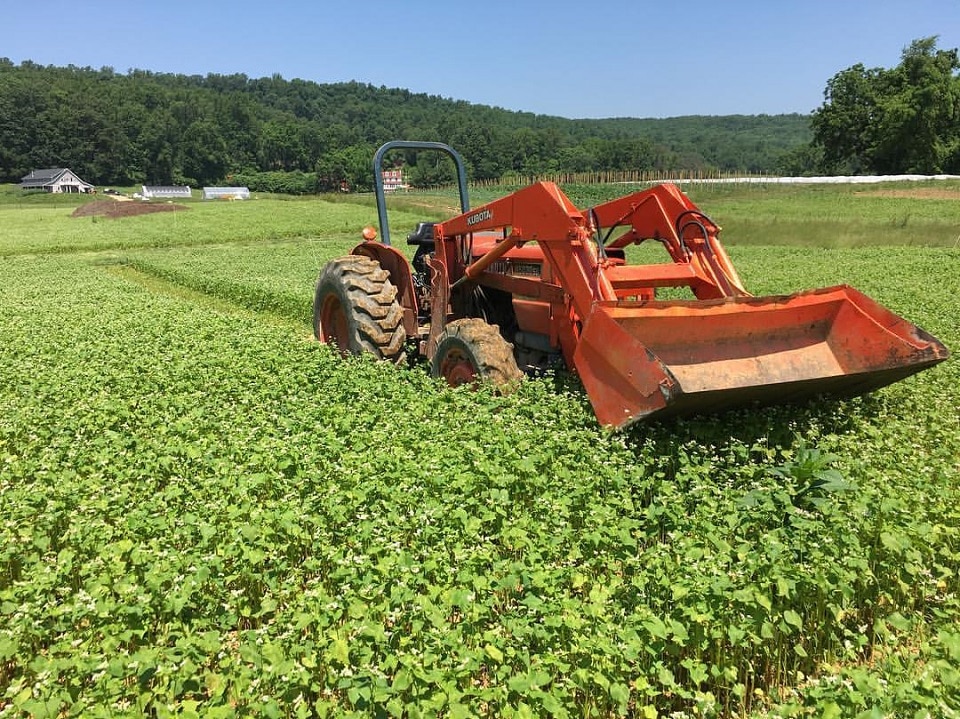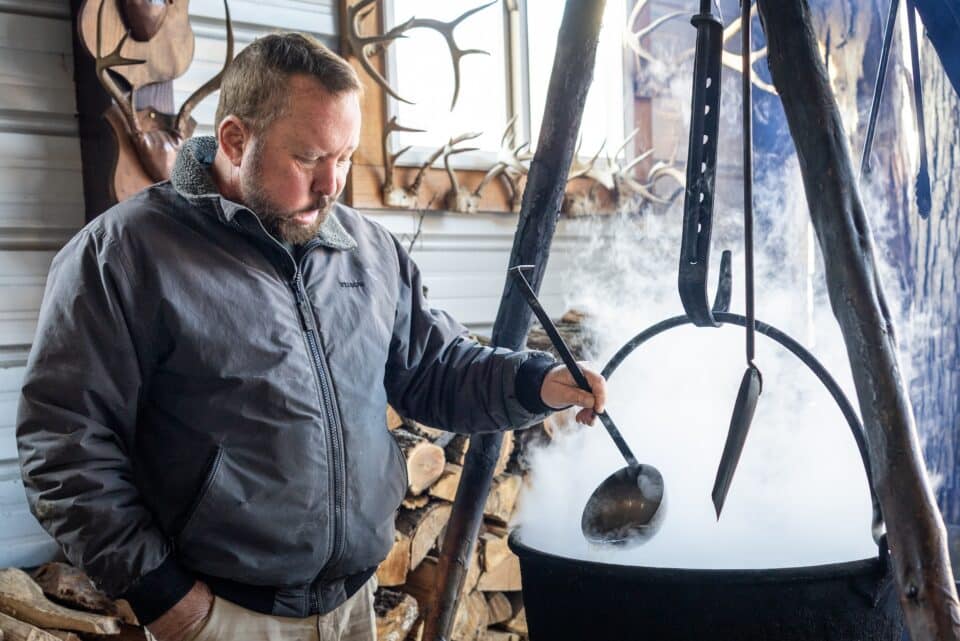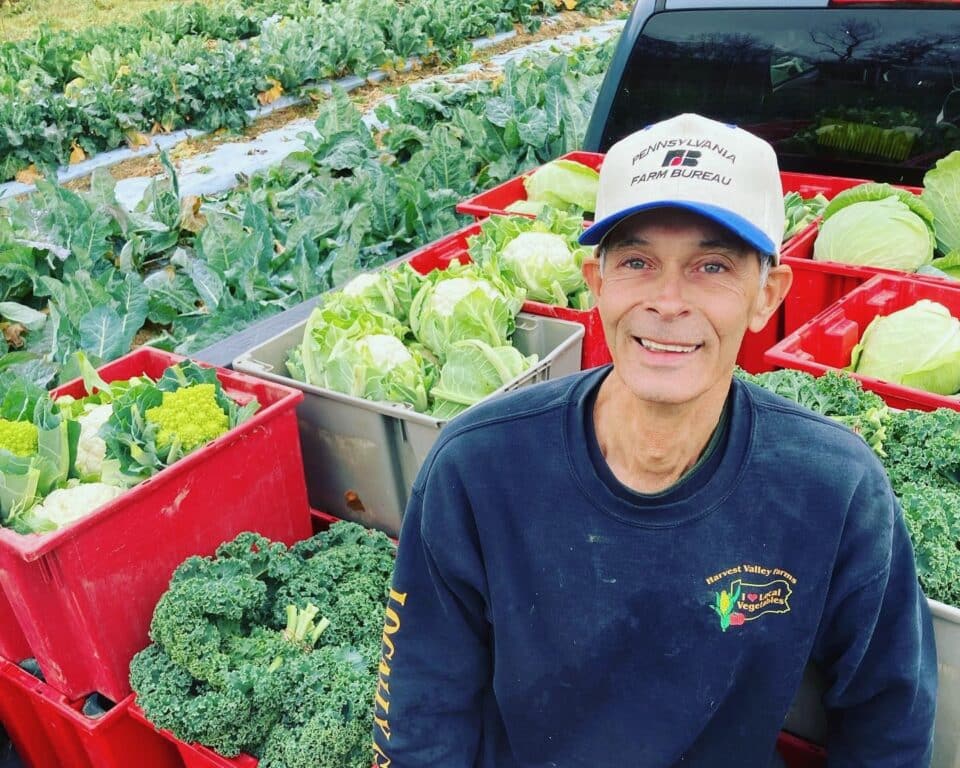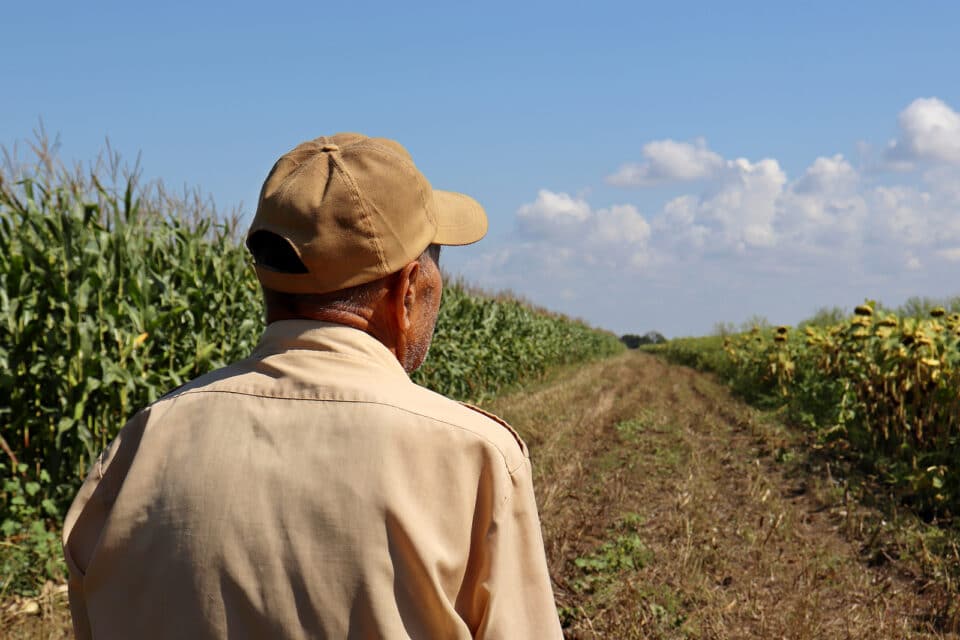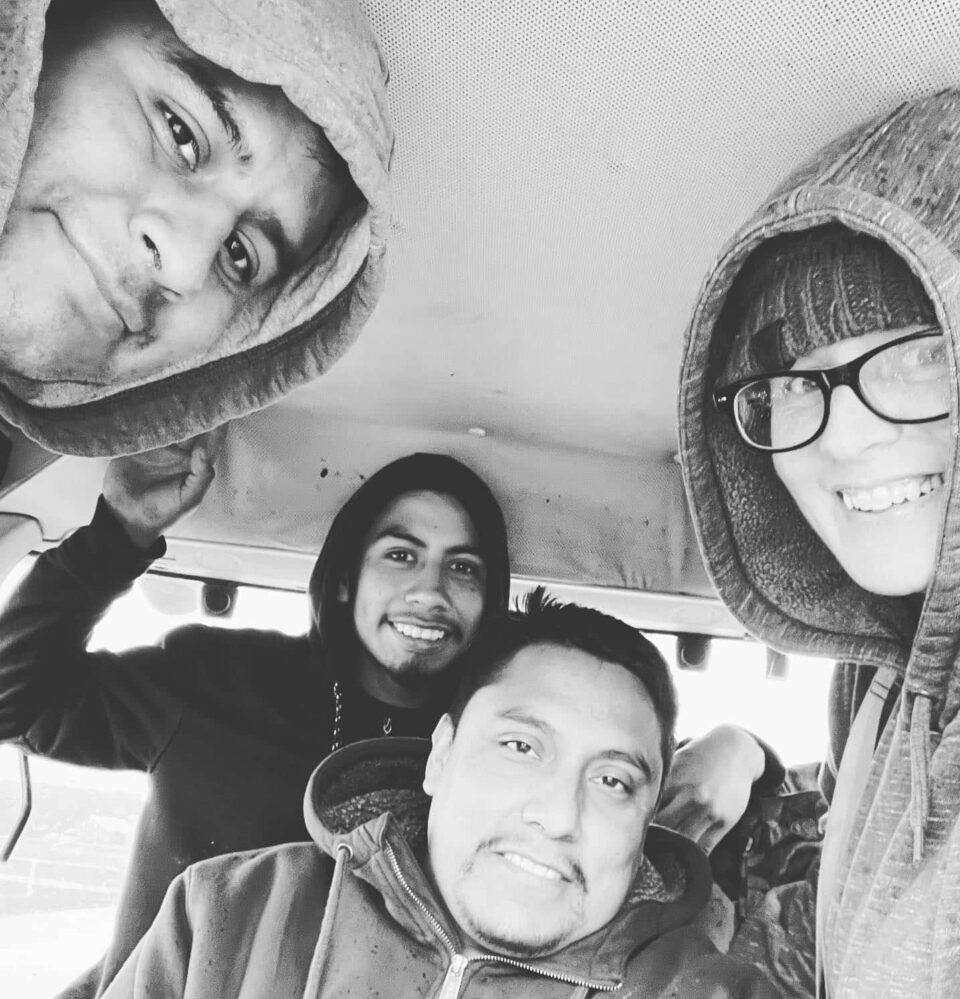On their 41-acre farm in Barto, Pennsylvania (about 20 miles southwest of Allentown), Ben and Karah Davies run Wild Fox Farm, which produces vegetables, fruits, eggs and animal proteins. Their mission, however, is not just to grow things, but to cultivate and regenerate the land, to preserve and re-energize the soil, and to support their community with food on a year-round basis.
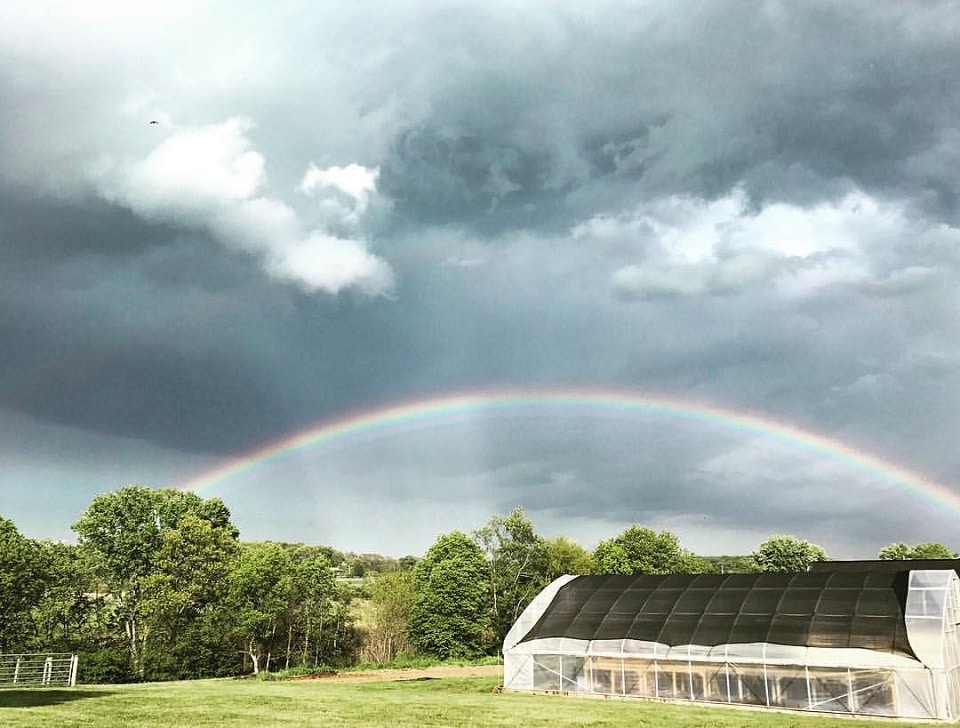
How did this young couple arrive at farming as a career path? And what exactly is regenerative agriculture and why don’t more farms strive toward it? Curious to learn more, I recently chatted with Ben Davies while he was half-buried in the hood of his truck, attempting to fix two injectors, as if to accidentally prove that the life of a family farmer is one of non-stop grit, grime and constant MacGyver-ing.
PA Eats: I saw on your website that the farm started in 2012. What did you and Karah do before then? Was farming and growing things part of your previous profession or more of a hobby?
Ben Davies: I’d always dreamed of it [farming] since I was younger. I loved being outside working, my parents always had a big garden. I don’t know if it’s something Karah thought about a lot, but in college we read a lot of Mary Oliver and Wendell Berry. We did a bike tour where we visited some organic farms in Central Pa., and that was more towards the beginning of when CSA farms were starting to take hold. We shared a lot of those thoughts and ideas and dreams together. Once we graduated from college, we tried to pursue further education and it didn’t really work out for us. I loved it but it wasn’t what I wanted to do with the rest of my life. When we had our first son and just sort of … having a child also really brings everything into focus, so that was an element, as well.
How did you decide to start your farm in The Butter Valley in Pennsylvania and not somewhere else?
Our farm is just four miles away from the house where I grew up and, the year that we decided to start farming, in 2010, we farmed in my parents’ yard. We wanted to raise our children closer to family, and, if we’re putting down roots, it just felt like we could have a lot to contribute to this area. There are a lot of areas that have more local agriculture and food movements, but that wasn’t happening much around here, and that’s really changed a lot since we’ve been here.
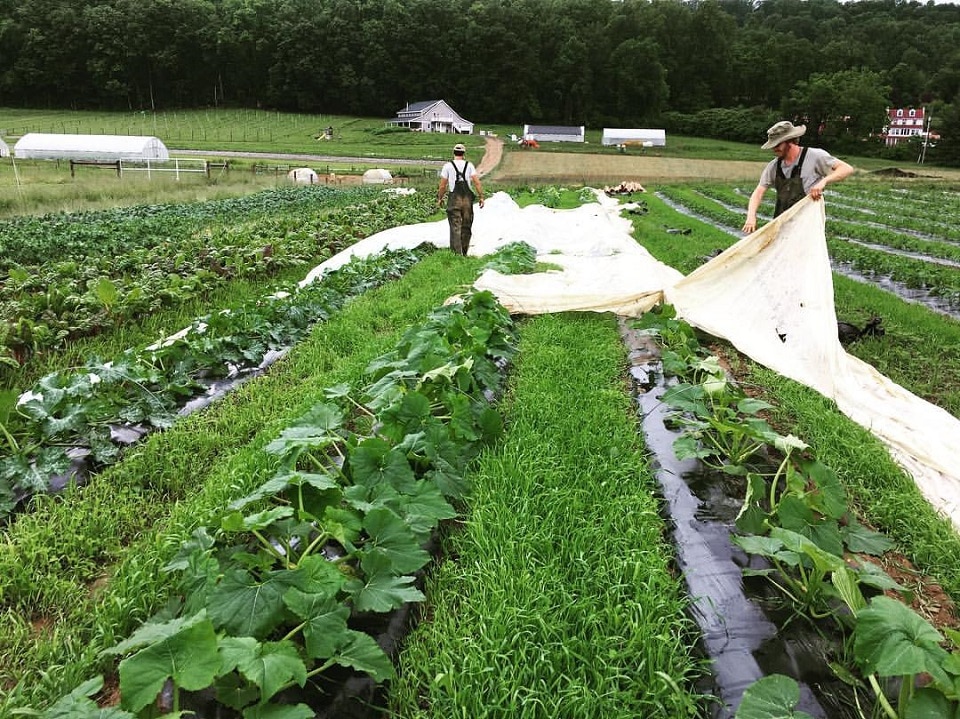
What inspired you to take “the leap” into larger-scale farming?
I worked part- and full-time jobs for the first three years of farming, and we had a lot of family support in a lot of ways. Some friends of ours had done a short-term CSA share that we were able to piggyback on during the first season, so we were able to adopt some share members pretty quickly, that was cool. We put everything we have, physically and financially into the farm.
Is there a prevailing model to follow with a CSA farm?
Well … that’s really changing a lot right now. You can still consider us a CSA farm but, actually, this is our last week ever of being a traditional CSA farm. We’re transitioning to selling at the Emmaus Farmers’ Market and we have a farm store here, it’s seasonal but we are sort of transitioning to focus more on that instead of on the CSA model.
There are some challenges that the CSA models face that are becoming apparent quickly in modern culture. In the local food economy, there’s a lot of interest, but peoples’ eating and shopping habits are very much convenience-based, and our culture doesn’t have much of the domestic arts anymore. A lot of people are intimidated by cooking. There are a lot more organic options at the grocery store that weren’t even around a few years ago. Also, as farmers, I don’t know if it’s always the best for a farmer to be growing everything under the sun. I don’t think that’s a sustainable model, even from an economic perspective. There are so many factors at work right now, I think it’s more challenging than ever to be in a sustainable farming business.
And, for us as farmers, I think it’s going to really help us be able to streamline and simplify what we’re doing so we’re not spread quite so thin. We have basically a club card that we’re offering to our members now, so you can charge up a “Wild Card” with however much you want, and then you get 10% off anything that we sell. We think that is much more flexible for consumers.
Can you recount a memorable moment of success, and one of struggle, that stand out from your start up days?
Learning how to raise 100% grass-fed and grass-finished lamb, that’s an extremely difficult thing to do. There’s not a lot of local knowledge on how to raise lamb. Lamb farming has largely moved to to South America and beef and cattle took its place. I enjoy it, but it’s always hard to learn how to finish an animal on 100% grass, as opposed to grain. It takes more management and a higher skill level, from managing the land to managing the animals. Because they’re not getting such a calorie-rich diet, they’re more susceptible to parasites, so that’s another thing we’ve been working on, learning the cycles of the parasites and learning how to mitigate that. We’ve been working on that for five or six years now and I feel like we’ve finally succeeded at doing that. There are some more hurdles to be overcome yet, but I feel like we’re in a pretty good place now.
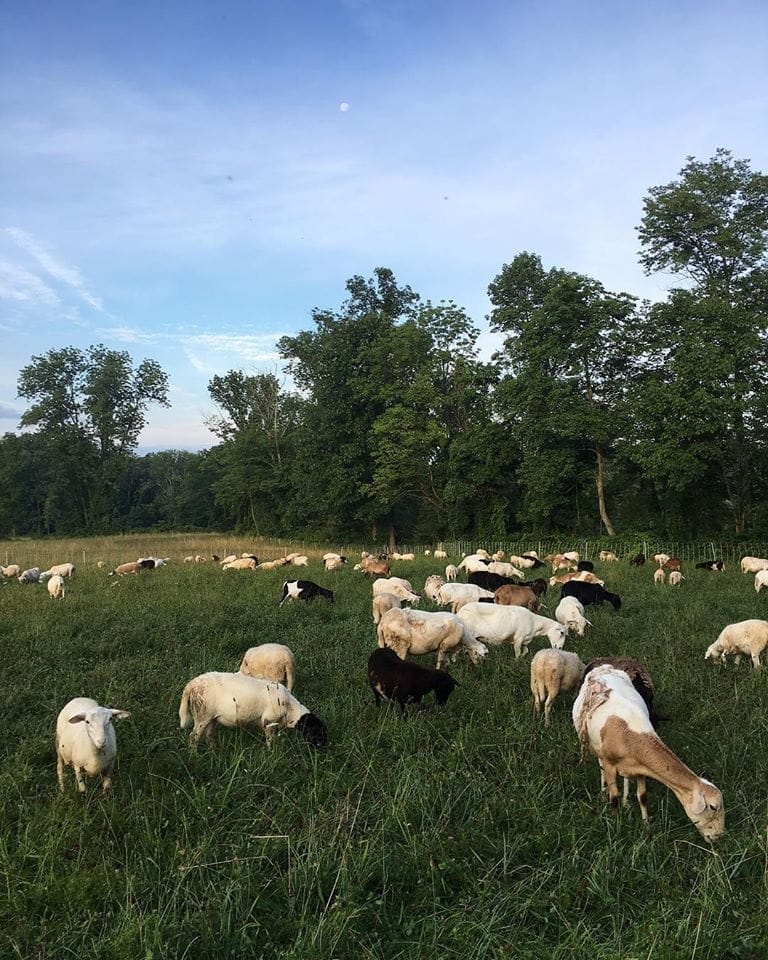
A big struggle for us recently has been finding some good labor; farming is not a very forgiving occupation and it’s a lot of hard, physical work and it’s not especially lucrative, so we can’t really pay people as well as we’d like to. So, it’s always a challenge to find really good, reliable employees.
Can you explain what “regenerative agriculture” means to you?
We use that word to signify that our goal is not just to be organic but to regenerate the ecosystem, and we are. We’ve seen in the five years we’ve been here, the organic matter levels rising in the soil, better productivity of the soil. The pasture is thriving and so we’re regenerating the land. And we’re also producing food and income for people at the same time.
Is it feasible for larger farming operations to use these methods? And if so, why does it seem that so many don’t?
Well, it is going to become more mainstream soon. The Rodale Institute and Savory Institute just launched certification programs this year, and those will be coming online.
“Organic” has been around for a while, and big business and legislation have found loopholes and different ways that aren’t what the original intention of the movement was. There is an interest in raising the bar on what organic is. The reason that more people are starting to use that word is that you’re regenerating the ecosystem and the land, and there are measurable increases in organic soil matter and water penetration and water holding capacity. Those are scientifically measurable things and not just ethereal concepts.
Do you have favorite things to grow, and things you wish you didn’t have to deal with but grow because of market demand?
We’re in the process of saying, “Forget it, we’re not doing any of the things we don’t want to do.” It would be really nice if we didn’t have to make money (laughs), because that’s the most challenging part of farming, having a businesses that’s financially sustainable.
Sweet corn is one of those things that people love, but also the deer, raccoons and birds love it, too. So, from the beginning, we said we wouldn’t do it. We tried off and on but it also seemed like very little reward for the time and effort we put into it.
We haven’t had our first harvest yet, but this year we’re growing high-CBD industrial hemp for CBD extraction, and I’ve had a lot of fun growing that and learning all about how beneficial it is for humans. So far, it’s done really well for us and the way we’re growing it, it’s very similar to the way we grow vegetables, so it’s not a very big transition. It’s almost like growing tomatoes.
Are there local chefs or restaurants that use your stuff that you want to give shout-outs to?
We sell to a bunch of restaurants in the Lehigh Valley, one that’s been pretty loyal is Trè Food Truck, I really like their food and they’ve been supporting us here for a couple years. They also have a cafe out in Muhlenberg called Cafe Frais.
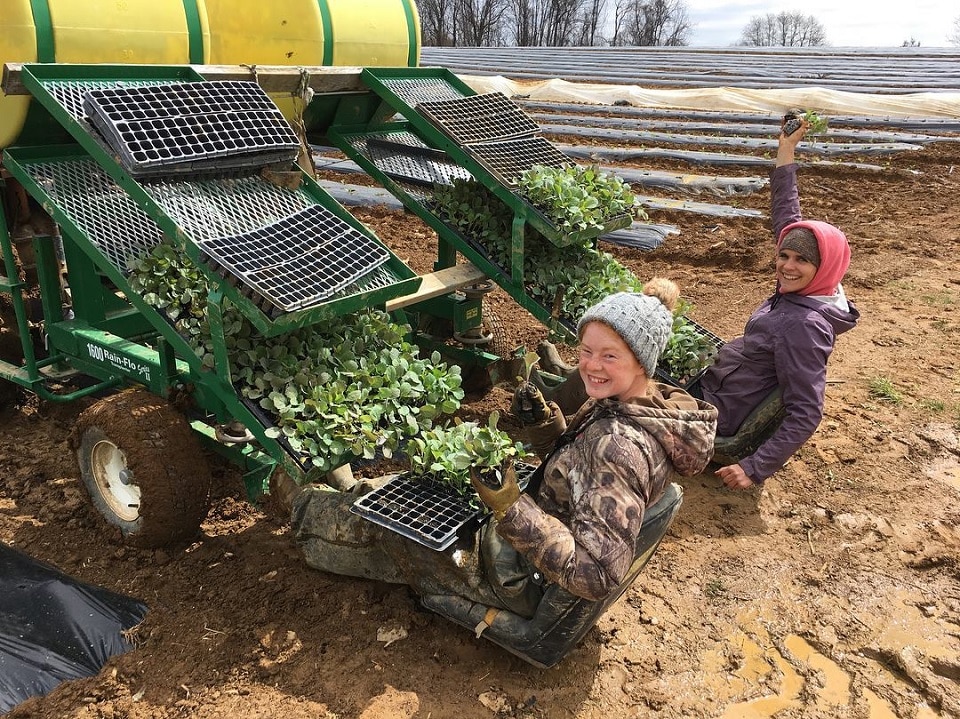
Enjoy Wild Fox Farm’s wares via curbside pickup at the farm, Monday to Friday from 1 – 7 p.m. and at the Emmaus Farmer’s Market, Phoenixville Farmers Market and the Rittenhouse Farmers Market. For more peeks into the operations at the farm, follow Wild Fox Farm on Facebook and Instagram. Find Wild Fox Farm at 5015 Longview Lane, Barto; (267) 424-1439.
- Photos: Wild Fox Farm
